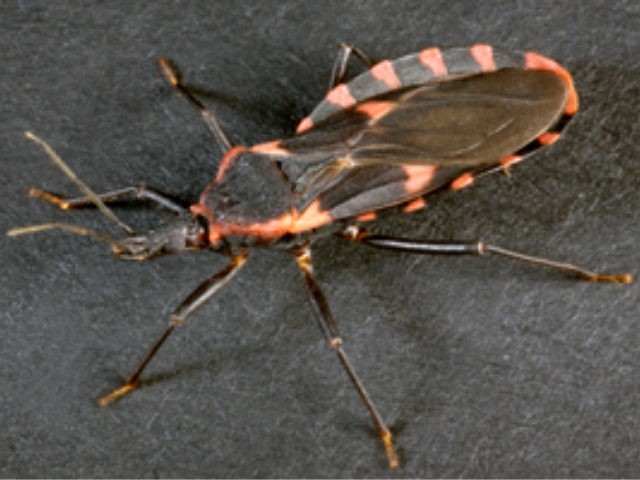The Centers for Disease Control and Prevention (CDC) has officially confirmed the presence of Triatoma sanguisuga in Delaware for the first time.
The parasitic insect feeds on the blood of animals and humans, and is nicknamed for its preference for biting faces. Like ticks and mosquitoes, the bites themselves are not the primary risk factor — it is the diseases they carry that pose real danger.
Specifically, these “kissing bugs” are known to carry other parasitic organisms, known as “protists,” called Trypanosoma cruzi. These microscopic invaders transmit Chagas disease. Chagas plays the long game. While it begins by presenting swollen lymph nodes, fever, and headaches, it can get much worse.
Advanced cases of Chagas may cause enlargement of the esophagus, colon, and heart failure from enlargement of the ventricles. Worst of all, these more serious symptoms can lie dormant for as much as 30 years before appearing.
A Kent County, Delaware, family first notified health officials about the insect in July 2018 after their daughter was bitten on the face while watching television. The family lives near a wooded area, and confirmed that no one from the family had recently traveled outside of the region.
The Delaware Division of Public Health identified the insect, but submitted pictures to Texas A&M University’s Kissing Bug Citizen Science Program to confirm its findings. Fortunately, there have been no other bite reports thus far.
Chagas affects 300,000 Americans, with the majority having caught it while in Mexico, Central America, or South America. And while there have been multiple confirmed sightings in the United States, the confirmed cases in which someone has developed Chagas after a bite are exceedingly rare.
“Even where T. cruzi is circulating, not all triatomine bugs are infected with the parasite,” the CDC said in its official report. “The likelihood of human T. cruzi infection from contact with a triatomine bug in the United States is low, even when the bug is infected.”

COMMENTS
Please let us know if you're having issues with commenting.